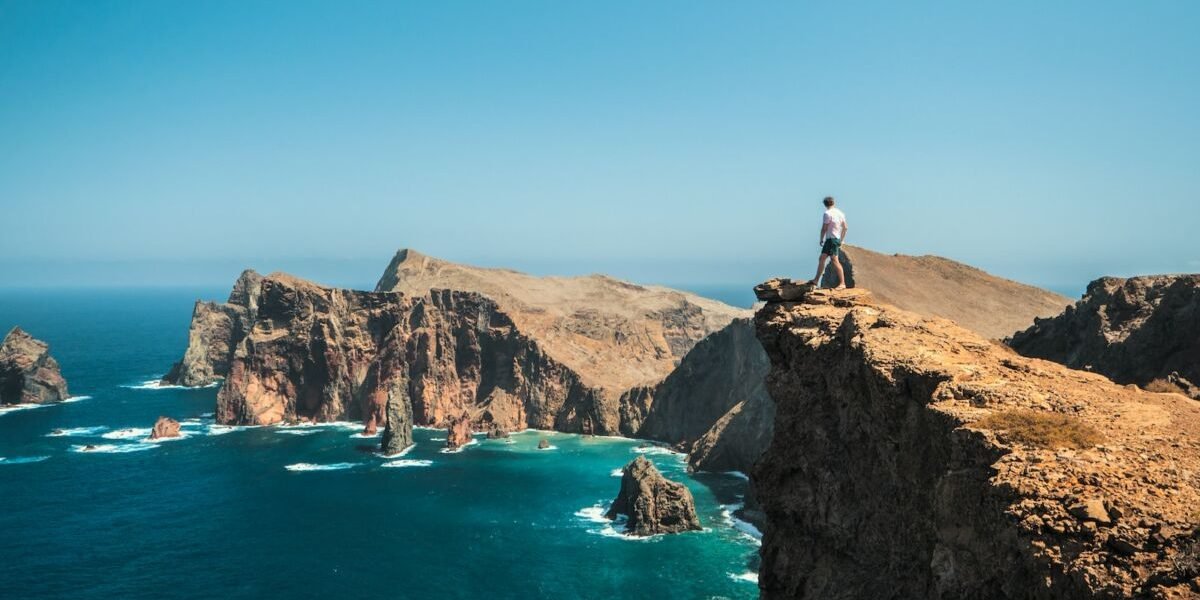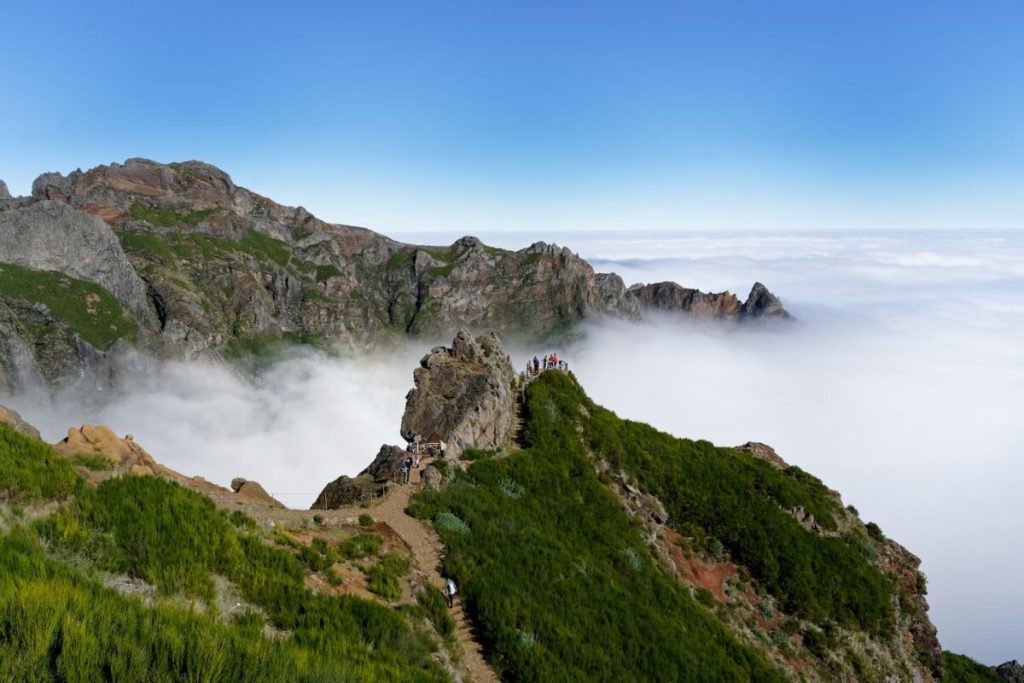Madeira for digital nomads, the largest island in the Madeira archipelago and an autonomous region of Portugal, has been making waves as a top destination for digital nomads from around the globe.
Recognizing the potential of this growing population of remote workers, the Regional Government of Madeira launched a pilot project in 2021 called Digital Nomads Madeira Islands, offering a unique experience within a Digital Nomad Village. This initiative aims to attract digital nomads to the island, providing an environment that blends work and leisure against the backdrop of breathtaking landscapes.
Digital nomads can enjoy the stunning ocean and mountain views the Madeira Islands have to offer while taking advantage of modern co-working spaces and extensive networking opportunities. With its mild climate, high-speed internet, and affordable living costs, this Portuguese island is an idyllic setting for remote workers who want to maintain a healthy work-life balance.
The introduction of the Digital Nomad Village in Ponta do Sol has taken Madeira’s remote work infrastructure to new heights. Here, digital nomads can work alongside like-minded individuals, immersing themselves in a vibrant and supportive community. For those looking for a refreshing and inspiring destination, Madeira is quickly becoming a prime choice among the digital nomad community.
The Digital Nomad Community
Growing Popularity of Remote Work
The digital nomad community is on the rise, thanks to the growing popularity of remote work. As more people choose to work remotely and embrace a lifestyle that combines work and travel, the number of American workers identifying as digital nomads has increased from 7.3 million in 2019 to 15.5 million by 2021.
This way of living has become particularly appealing to IT professionals and freelancers who can perform their tasks from any location with an internet connection. Traditional office-based positions are gradually shifting to remote work, opening up new possibilities for many professionals across various industries.
Networking and Skill-Sharing
One of the key aspects that sets successful digital nomads apart from others is their ability to be part of a larger digital nomad community. By connecting with like-minded individuals, digital nomads foster a sense of belonging while gaining opportunities for networking, collaboration, and skill-sharing. A supportive community can also help them overcome the challenges and loneliness that may accompany their unique lifestyle.
Here are some popular ways digital nomads can forge connections with their peers:
- Co-working spaces: Sharing workspaces with fellow digital nomads can facilitate networking and collaboration.
- Online communities: Platforms like Facebook groups, Reddit, and Slack provide an avenue for digital nomads to connect, share experiences, and ask for advice.
- Events and meetups: Attending local events, workshops, and meetups can help digital nomads widen their professional networks and establish deep connections.
Top Digital Nomad Destinations in the US Alone
Selecting travel destinations that cater to the digital nomad lifestyle is critical when planning a successful remote work journey. Here are the top 10 cities in the U.S. to be a digital nomad:
- Salt Lake City
- Boston
- Denver, Colorado
- Concord, New Hampshire
- Minneapolis
- Miami
- Portland, Maine
- Montpelier, Vermont
- Jackson, Wyoming
- Seattle
When searching for a digital nomad destination, key factors to consider include internet connectivity, affordability, safety, and a vibrant cultural scene that makes it easy to socialize and connect with fellow digital nomads. Choosing a destination that aligns with individual preferences and work requirements is essential to ensure a fulfilling digital nomad lifestyle.
Top Destinations for Digital Nomads Globally
Madeira, Portugal
Madeira is a Portuguese archipelago located in the Atlantic Ocean, making for an excellent location for digital nomads. Known for its lush landscapes and favorable climate, it offers an affordable, safe, and picturesque environment.
Madeira’s quality of life combines European culture with beautiful beaches, hiking trails, reliable internet speeds, and affordable accommodations. One of the most recommended locations for remote work is Funchal, the island’s capital.
Bali, Indonesia
Bali, located in Indonesia, has become one of the most popular destinations for digital nomads over the past few years. This tropical paradise offers everything location-independent professionals may seek, including affordable living costs, diverse coworking spaces, and a tight-knit ex-pat community.
The cities of Ubud and Canggu are particularly popular among digital nomads, offering a mix of beachside cafes, work-friendly establishments, and culturally-rewarding experiences.
Canary Islands, Spain
The Canary Islands, an archipelago located close to Morocco, belong to Spain and are another top choice for digital nomads in Europe. These volcanic islands are known for their stunning landscapes, pleasant climate, and incredible biodiversity. The Canary Islands offer impressive historical sites, tasty local cuisine, and numerous outdoor activities.
The cities of Tenerife and Gran Canaria have some of the best resources for digital nomads, including fast internet, coworking spaces, and a growing community of like-minded professionals. It’s worth considering the Canary Islands for their unique combination of European convenience, vibrant culture, and year-round sunshine.
A Closer Look at Madeira
Madeira, an archipelago in the Atlantic Ocean, has become a popular destination for digital nomads seeking a picturesque and convenient location to call home for a while. Let’s explore some of the top destinations in Madeira for digital nomads: Funchal, Ponta Do Sol, Jardim Do Mar, and Santa Cruz.
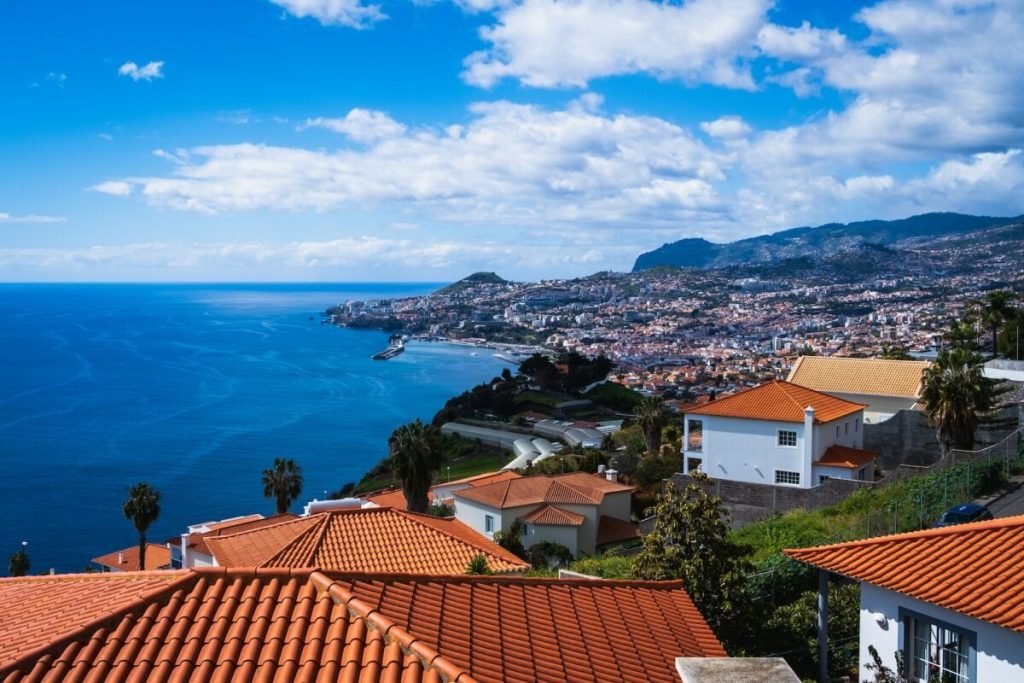
Funchal
Funchal, the capital of Madeira, is known for its charming old town, pretty harbor, and stunning views. With an appealing mix of city sights, historical buildings, and natural beauty, Funchal suits digital nomads craving a balance between work and life. The city boasts a wide range of cafes, coworking spaces, and accommodation options, making it easy for remote workers to settle down and connect with others within the thriving digital nomad community.
Ponta Do Sol
With its pleasant climate and picturesque views, Ponta Do Sol is another excellent destination for digital nomads. A well-known feature of this area is the peaceful atmosphere, which invites relaxation alongside productivity. Remote workers will also appreciate the rural charm combined with modern facilities, such as coworking spaces and a range of eateries catering to different tastes.
Jardim Do Mar
A small village on the southwest coast of Madeira, Jardim Do Mar appeals to digital nomads seeking a quiet retreat. With a narrow, winding road leading to the village, the sense of remoteness adds to its appeal. With a small number of bars and restaurants, Jardim Do Mar offers a slower pace of life while still providing essential facilities for remote work. It’s an ideal spot for digital nomads wanting to connect with nature while remaining productive.
Santa Cruz
Santa Cruz, located on the eastern side of Madeira, offers a blend of traditional and modern features. Santa Cruz retains much of its historic charm with a main square, charming streets, and attractive architecture. Digital nomads will find coworking spaces, cafes, and accessible transport links. The location also provides opportunities for exploring the islands’ natural beauty, offering a balance between productive work and relaxation in a stunning setting.
Madeira boasts a range of locations suitable for digital nomads, tailored to various preferences and work styles. From Funchal’s bustling streets to Jardim Do Mar’s peaceful atmosphere, there is a spot on this beautiful archipelago for every remote worker seeking the perfect work-life balance.
Establishing a Base in Madeira
Madeira is an attractive destination for digital nomads due to its pleasant climate, stunning landscapes, and welcoming atmosphere. In this section, we will explore accommodation and workspace options for digital nomads who are looking to establish a base on this Portuguese island.
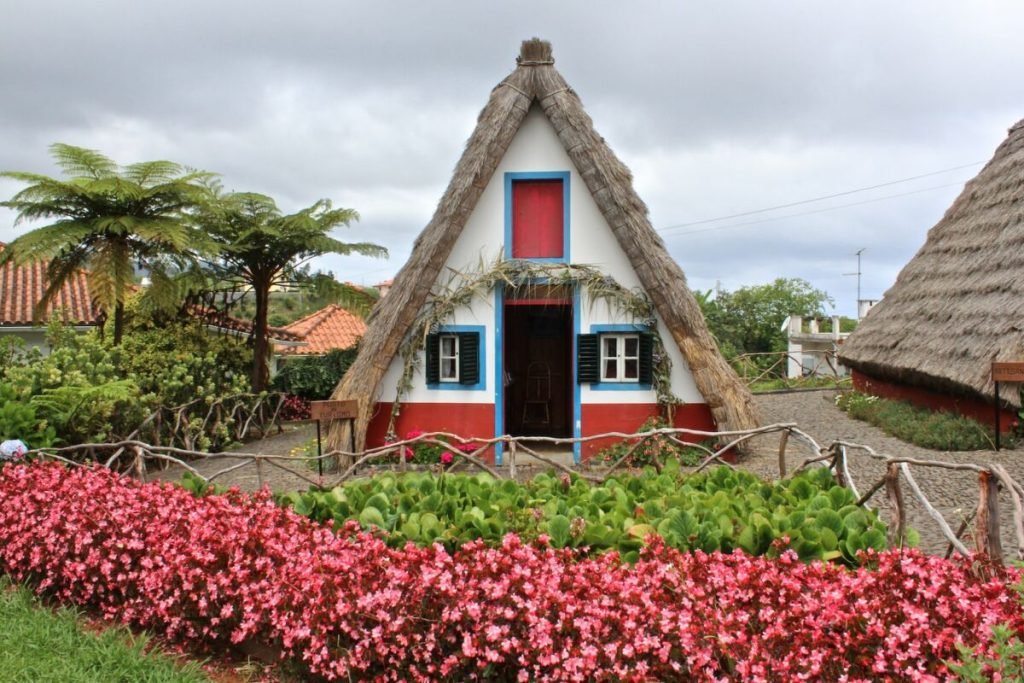
Accommodation Options
Madeira has various accommodation options, ranging from hotels and guesthouses to apartments and more long-term rentals.
- Airbnb: As a popular tourist destination, Madeira offers an extensive range of Airbnb’s catering to different budgets and preferences. These options can be ideal for short stays or testing the waters before committing to a longer rental.
- Long-term rentals: For digital nomads planning a more extended stay, long-term rentals of apartments or houses can be found on websites like Freaking Nomads. The prices might vary depending on the location, size, and amenities. The capital city, Funchal, is popular with digital nomads due to its vibrant culture and available services.
- Hotels and guesthouses: Madeira has numerous hotels and guesthouses catering to a range of budgets, from luxury to budget options. These can be a suitable choice for those who prefer more on-site services.
Coworking Spaces
Madeira’s growing popularity among digital nomads has led to an increase in coworking spaces. One notable example is the Digital Nomads Madeira Village in Ponta do Sol, which provides a work environment specifically designed for remote workers, along with exclusive events and access to a local community. Other coworking establishments can be found in the capital, Funchal, and other towns throughout the island.
Co-Living Spaces
Co-living spaces are gaining popularity, allowing digital nomads to live and work alongside like-minded individuals in a collaborative community. Madeira has recognized this trend and wants to create more welcoming spaces for digital nomads. The Digital Nomads Madeira Village is an example of a co-living space where digital nomads can connect while sharing living spaces and work environments.
In summary, Madeira provides a variety of accommodations and working spaces for digital nomads to establish their base. With the island’s commitment to developing its digital nomad community, it is poised to become an increasingly appealing hub for professionals seeking a perfect balance between work and leisure.
Madeira’s Digital Nomad Village
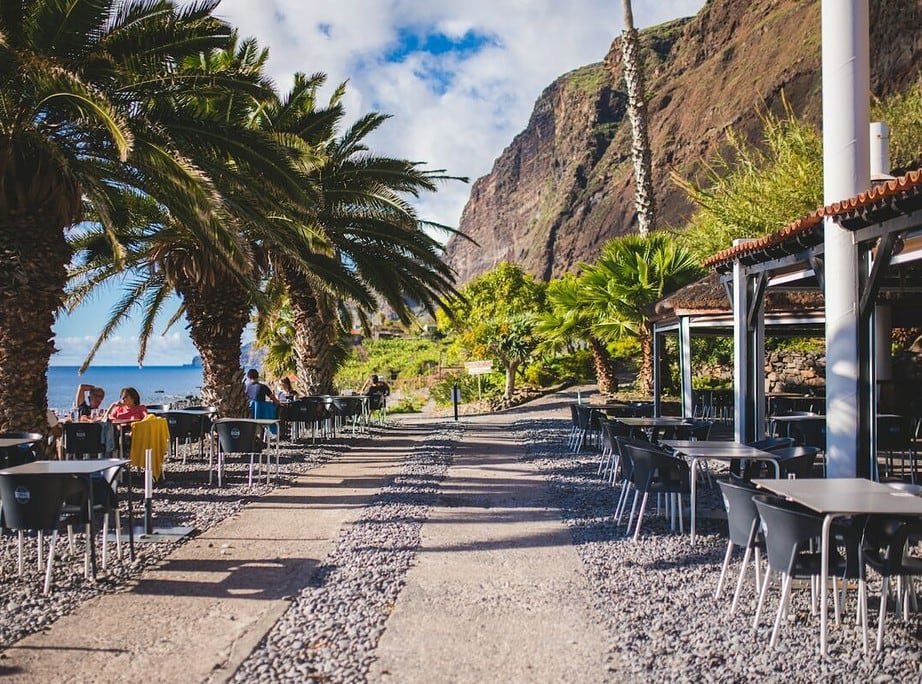
The Story Behind the Concept
Madeira’s Digital Nomad Village is an innovative initiative that emerged in response to the Covid-19 pandemic and its impacts on work-life. The village was created through a collaboration between the regional government of Madeira, Startup Madeira, and remote work consultant Gonçalo Hall. The project can host up to 100 nomads who must commit to staying for at least a month, fostering a strong sense of community and offering an escape from crowded urban centers.
Benefits and Facilities
Madeira’s Digital Nomad Village offers a range of advantages and onsite amenities which include:
- A picturesque location on the beautiful island of Madeira provides a walkable and quiet environment perfect for location-independent professionals.
- Top-quality coworking spaces with high-speed internet provide a productive and comfortable environment for work.
- Access to ex-pat and digital nomad communities, enabling residents to network, socialize and collaborate.
- Supported by local businesses such as real estate, hotels, and rental car companies, ensuring convenient access to essential lifestyle services.
- The opportunity to immerse in Madeira’s unique culture and outdoor activities leads to a well-balanced and enjoyable work-life experience.
The village’s facilities cater to the needs of digital nomads and remote workers, with coworking spaces and coliving options available. Here’s a quick overview of the primary offerings:
| Facility | Description |
|---|---|
| Coworking Space | High-speed internet, workstations, meeting rooms, and a friendly community. |
| Coliving | Shared or private living spaces that foster collaboration and networking. |
| Support Services | Access to car rentals, accommodation options, and various local businesses. |
Madeira’s Digital Nomad Village is an exciting innovation that provides a much-needed oasis to ex-pats and location-independent workers looking for a desirable work environment. With its beautiful surroundings, state-of-the-art co-working spaces, and supportive community, it’s no wonder that Madeira is quickly becoming a sought-after destination for digital nomads.
Visas and Relocation
Digital Nomad Visa
A digital nomad visa allows remote workers to stay in a country and work remotely via a computer/laptop for foreign-based employers or businesses. Typically, these visas have a duration of 12 months and can be extended for one or more years. More than 25 countries and territories have launched digital nomad visas to attract remote workers.
Some popular countries offering digital nomad visas include:
- Estonia
- Barbados
- Antigua and Barbuda
- Georgia
The application process and requirements for these visas vary but usually include proof of income, insurance, and other necessary documents.
Portugal’s D7 Visa
The D7 visa, also known as the Passive Income Visa, is designed for individuals who want to relocate to Portugal with a stable income from outside the country. The visa is suitable for digital nomads, freelancers, remote workers, and retirees. The minimum monthly income requirement varies based on the applicant’s family status but is approximately €1,200 for a single person.
Some key benefits of Portugal’s D7 visa include:
- Access to Portuguese healthcare
- Access to the Schengen Area
- Eligibility for Portuguese citizenship after five years
Residence Permit
A residence permit allows individuals to stay in a country and work remotely for extended periods of time. It can be a viable option for digital nomads looking to establish a more permanent base in a specific country. Requirements and conditions for obtaining a residence permit vary by country, but most demand proof of income, local address, health insurance, and a valid passport.
Gonçalo Hall, a Portuguese entrepreneur and remote work consultant, is known for supporting digital nomads in relocating to Madeira Island. He has helped numerous workers obtain residence permits and establish a thriving remote work community.
In summary, remote workers have various options to relocate while continuing their work, whether opting for a digital nomad visa, Portugal’s D7 visa, or a residence permit. It is crucial to research each option’s requirements and conditions to make an informed decision.
Cost of Living in Madeira
Housing
Renting a place to stay in Madeira can be quite affordable. For a digital nomad, monthly rent costs can be around $661 per month. If you prefer staying in hotels, you could spend about 600 euros per month, while renting a whole house on Airbnb would cost approximately 800 euros per month.
Transportation
Getting around in Madeira is relatively easy and cost-effective. You may choose to rent a car, ranging from 500-800 euros per month for the car, insurance, and petrol combined. If you prefer public transportation or taxis, expect to spend around 100 euros per month. Additionally, a ferry service between Madeira and the neighboring Porto Santo Island allows you to explore more of the region effortlessly.
Food
The cost of groceries and restaurant meals in Madeira is quite reasonable. On average, you can expect to spend around 500 euros per month on food. Dining out in a restaurant is also affordable, with a meal typically costing about 20 euros each time. If you dine out four times a month, that adds up to 80 euros per month in restaurant meals.

Lifestyle
Madeira offers a variety of leisure activities for digital nomads to enjoy. Spending on leisure activities can be as low as 100 euros per month, depending on your preferences. Madeira is known for its year-round pleasant climate, beautiful landscapes, and outdoor activities like hiking, surfing, and exploring charming towns. As a digital nomad, you can experience a quality lifestyle in Madeira without breaking the bank.
Work-Life Balance in Madeira
Nature and Outdoor Activities
Madeira is an ideal destination for digital nomads who want to maintain a healthy work-life balance. The island offers many nature and outdoor activities to keep you engaged during your downtime. With its scenic landscapes and pleasant climate, Madeira is perfect for hiking enthusiasts. The island’s diverse terrain provides a variety of hiking trails, ranging from easy strolls to challenging mountain climbs.
For those who enjoy water sports, Madeira is a haven for surfing. The island’s location in the middle of the Atlantic Ocean, about 500-600 km from the African coast, provides excellent wind and wave conditions for beginners and experienced surfers. Additionally, the surrounding waters offer swimming, diving, and snorkeling opportunities.
Local Culture and Traditions
Embracing Madeira’s local culture and traditions can further enhance your work-life balance. The island’s picturesque villages, including Machico, Caniçal, and Câmara de Lobos, offer unique insight into the regional customs and lifestyle. Immerse yourself in the vibrant community by exploring local markets, tasting traditional cuisine, and attending community events.
The regional government of Madeira promotes cultural exchange, presenting an opportune environment for digital nomads seeking to integrate with the local community.
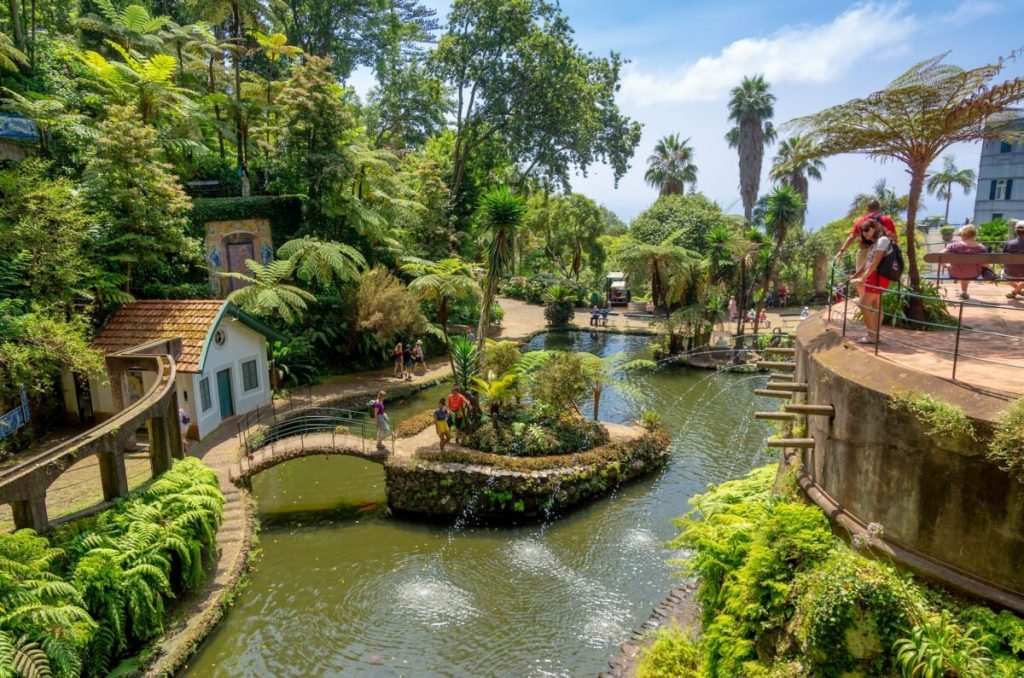
Events and Networking
Madeira is committed to fostering a thriving digital nomad community, with various events and networking opportunities organized on the island. Examples include the popular Digital Nomads Madeira Slack group, which connects remote workers on the island for collaboration and socialization. Additionally, the digital nomad village in Ponta do Sol offers a dedicated workspace with high-speed internet, creating an ideal environment for networking and exchanging ideas with other location-independent professionals.
Participating in local events and sports activities can further enhance your networking opportunities and create connections within the digital nomad and local communities alike. Overall, Madeira provides the perfect setting for achieving an enjoyable work-life balance while working remotely.
Digital Nomad Trends
The Future of Remote Work and Nomadism
As technology advances and worldwide internet access continues to improve, the number of people adopting a digital nomad lifestyle is increasing rapidly. With the ability to work remotely, the demand for remote jobs has grown, allowing digital nomads to explore new destinations and experience varying subtropical climates while maintaining a steady income.
Nomad-friendly cities with reliable internet connections and thriving local businesses are attracting an influx of digital nomads. These cities have adjusted to accommodate remote workers, providing co-working spaces, affordable accommodation, and networking opportunities.
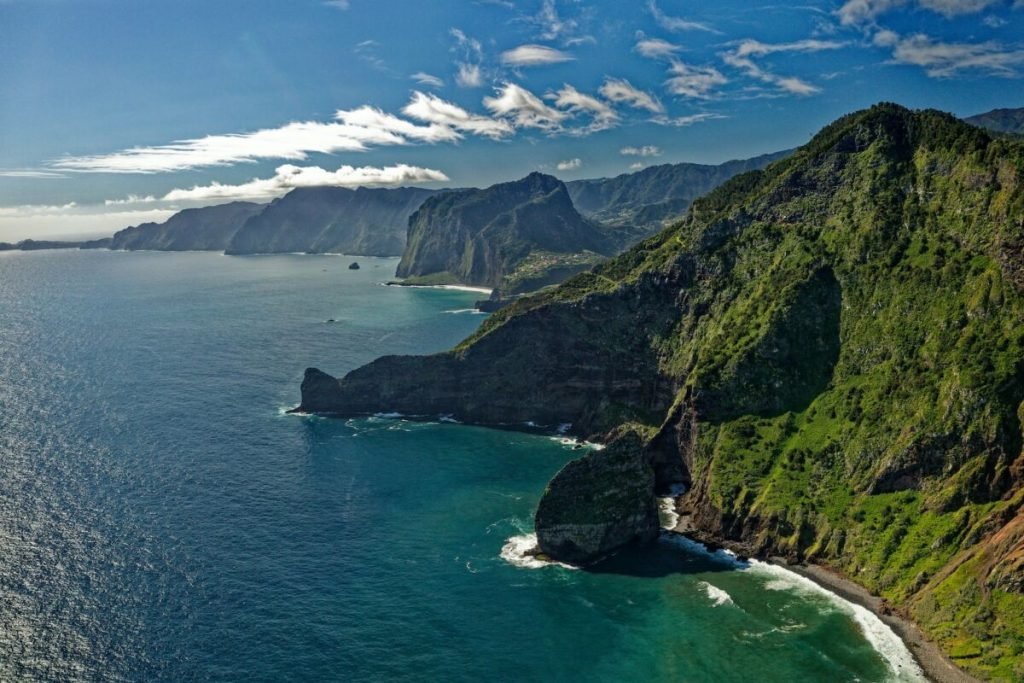
Moreover, digital nomads have started adapting their routines to incorporate a healthy work-life balance. They use time-tracking tools to maintain a structured schedule and allocate specific periods for work while ensuring time to explore their temporary homes and immerse themselves in the local culture.
The digital nomad trend has expanded beyond traditional freelancers, with established professionals and even entire families joining the movement. This diversification of the digital nomad population has led to increased growth in the digital finance sector, offering a range of products and services specifically tailored to those living and working abroad.
COVID-19’s Impact on Digital Nomadism
The pandemic has significantly impacted jobs, with many companies transitioning to remote work and their employees working from home. This change has amplified the digital nomad lifestyle, allowing a broader range of professionals to explore remote work opportunities.
With the rise in remote work, the digital nomad community has seen a shift in composition. Approximately 76% of digital nomads are traditional remote employees, and 34% are independent workers. This development significantly impacts how digital nomadism is perceived and has contributed to its popularity and growth.
However, while the pandemic has pushed more people towards a location-independent lifestyle, it has also presented challenges like travel restrictions and health concerns. Many digital nomads have had to adapt their plans, focusing on longer stays in destinations or staying within specific countries or regions.
As travel restrictions slowly ease and COVID-19’s impact on the world diminishes, we can expect to witness continued growth in the digital nomad population. In response, more cities, local businesses, and governments will likely adopt measures to accommodate and support this new demographic, ensuring the sustainability of the digital nomad lifestyle.
Originally posted 2023-01-12 13:27:56.

